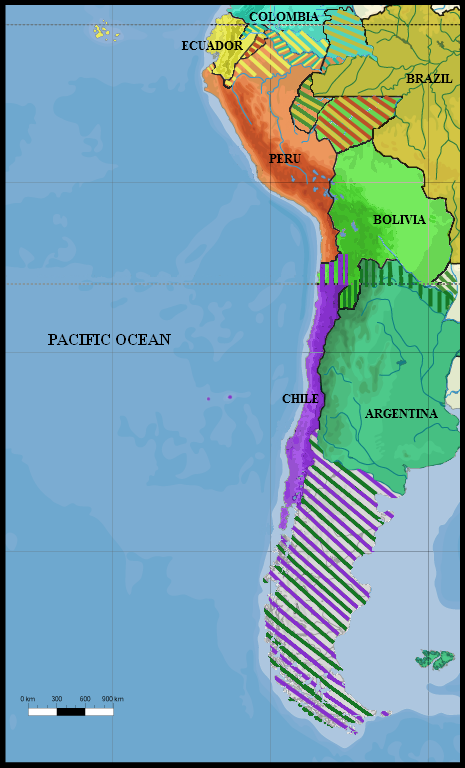|
Tarapacá Campaign
The Tarapacá campaign was a short stage of the War of the Pacific in the last months of 1879, after the Chileans won definitive naval superiority at Angamos. It took its name from the region where it was fought. After Angamos, the Chilean government began the preparations for an invasion of the Tarapacá Department, a Peruvian territory rich in nitrates and whose exploitation quarrel began the war. In its favour, Chile had the advantage of mobility, since the Allies could only move supplies and troops by land. Along this campaign both armies had to endure the difficulties of fighting across the desert. For the Chileans, the goal of the Tarapacá campaign was to secure the department and to hold it as ransom until war reparations were paid once the war ended. Background Following the outbreak of war in April 1879, both sides focused on gaining naval superiority, since the extremely arid Atacama Desert was a formidable barrier for a land campaign. Therefore, the war first deve ... [...More Info...] [...Related Items...] OR: [Wikipedia] [Google] [Baidu] |
War Of The Pacific
The War of the Pacific (), also known by War of the Pacific#Etymology, multiple other names, was a war between Chile and a Treaty of Defensive Alliance (Bolivia–Peru), Bolivian–Peruvian alliance from 1879 to 1884. Fought over Atacama Desert border dispute, Chilean claims on Litoral Department, coastal Bolivian territory in the Atacama Desert, the war ended with victory for Chile, which gained a significant amount of resource-rich territory from Peru and Bolivia. The direct cause of the war was a nitrate taxation dispute between Bolivia and Chile, with Peru being drawn in due to its secret alliance with Bolivia. Some historians have pointed to deeper origins of the war, such as the interest of Chile and Peru in the nitrate business, a long-standing rivalry between Chile and Peru for regional hegemony, as well as the political and economical disparities between the stability of Chile and the volatility of Peru and Bolivia. In February 1878, Bolivia increased taxes on the Chile ... [...More Info...] [...Related Items...] OR: [Wikipedia] [Google] [Baidu] |
